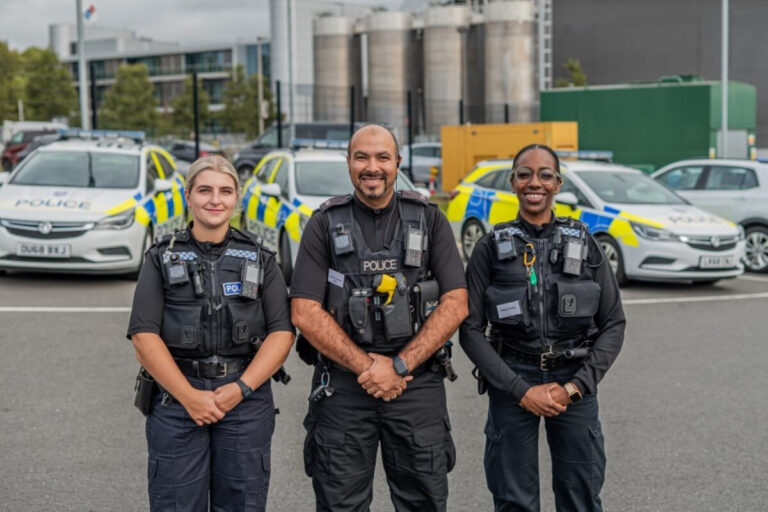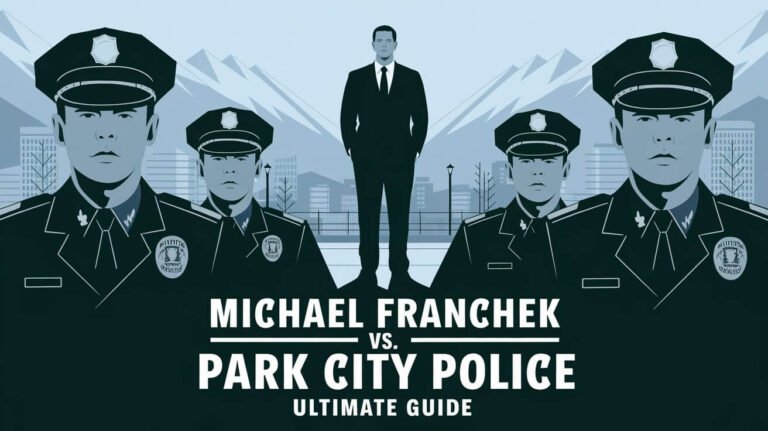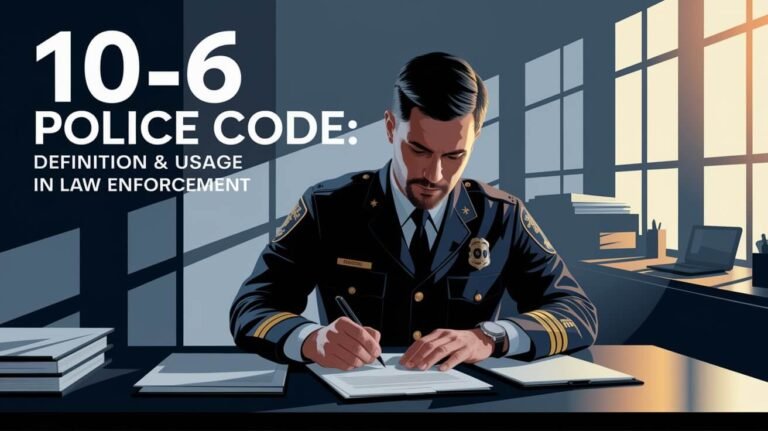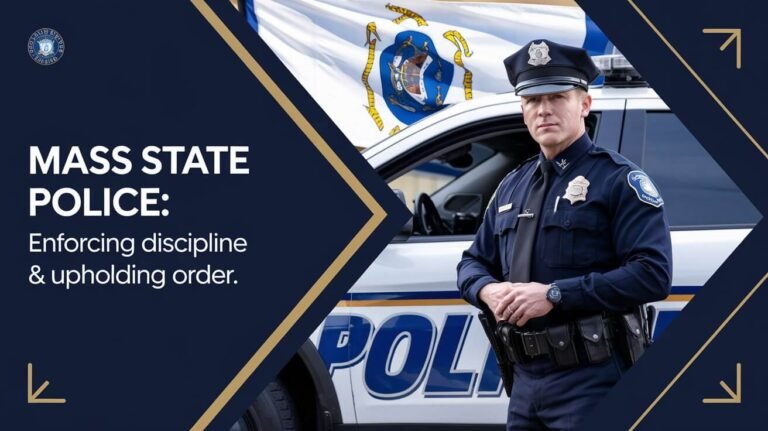Metro Police vs Regular Police: A Comprehensive Guide
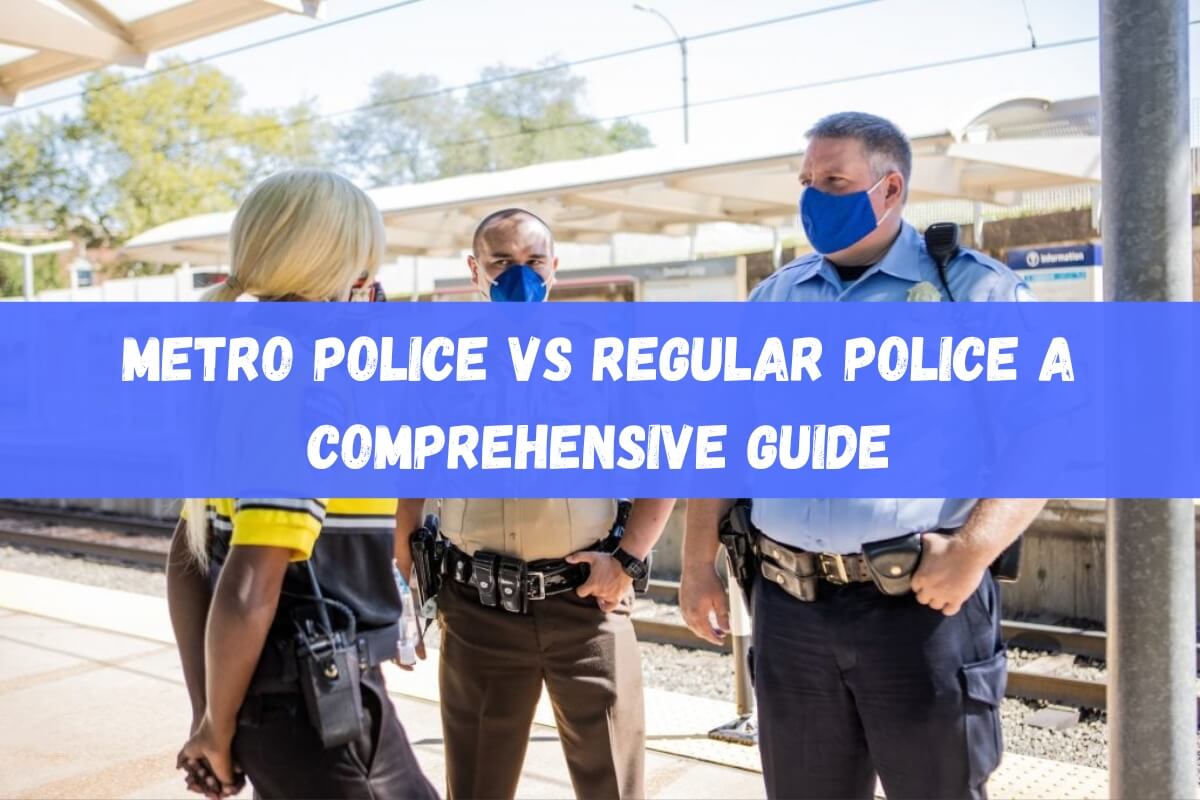
In the intricate world of law enforcement, the terms “metro police” and “regular police” are often used interchangeably, leading to confusion about their distinct roles and responsibilities. As cities continue to grow and evolve, the need for specialized law enforcement agencies equipped to handle the unique challenges of metropolitan areas becomes increasingly apparent.
What sets metro police apart from regular police departments, and how do their roles differ?
Metro police, or metropolitan police departments, are law enforcement agencies specifically designed to serve major metropolitan areas with high population densities and complex law enforcement needs. In contrast, regular police departments typically operate within the boundaries of a single city or municipality.
This guide contrasts metro police and regular police. It covers their setups, areas they oversee, special teams, and urban challenges. Metro police roles in big cities, major events, protecting important people, and strict training requirements are also included.
Defining Metro Police
Metro police, short for metropolitan police, are law enforcement agencies that serve major metropolitan areas or large cities with high population densities and complex law enforcement needs. These departments often go by names like “Metropolitan Police Department” or “Metro Police Department.”
Some well-known examples include:
- Las Vegas Metropolitan Police Department (LVMPD)
- Metropolitan Police Department of the District of Columbia (Washington D.C.)
- Houston Metropolitan Transit Authority Police Department (MTPD)
While many large cities have “Metropolitan” or “Metro” in their police department’s name, others may not, such as the New York City Police Department (NYPD) or the Los Angeles Police Department (LAPD). In these cases, the term “metro” often signifies a specialized, elite unit within the larger police force.
Roles and Responsibilities of Metro Police
Metro police departments share many responsibilities with regular municipal police forces, including:
- Responding to emergency calls
- Patrolling neighborhoods and communities
- Investigating crimes
- Enforcing laws and making arrests
- Providing security and traffic control for major events
Metro police have specialized units and broader jurisdictions to address the complexities of policing large cities.
Specialized Units in Metro Police Departments
Metro police agencies frequently maintain elite units dedicated to handling specific tasks that require advanced training and specialized equipment. These units include:
- SWAT (Special Weapons and Tactics) Teams: Highly trained teams that respond to high-risk situations, such as hostage scenarios, barricaded suspects, or other critical incidents.
- Counterterrorism Units: Units focused on preventing and responding to potential terrorist threats in major cities, often working closely with federal agencies.
- Mounted Units: Officers on horseback used for crowd control, patrolling parks and trails, and ceremonial purposes.
- K-9 Units: Police dogs and handlers are used for tracking, drug detection, and apprehending suspects.
These specialized teams require extensive training and state-of-the-art equipment to effectively address the unique challenges of metropolitan policing.
Expanded Jurisdiction of Metro Police
In some cases, metro police agencies have jurisdiction that extends beyond the boundaries of a single city or county. For example, the Metropolitan Police Department of the District of Columbia has jurisdiction throughout the entirety of Washington D.C., while other agencies may cover multiple surrounding counties or regions.
This expanded jurisdiction allows metro police to more effectively coordinate law enforcement efforts and share resources across a larger geographic area, enabling a more comprehensive approach to addressing complex crimes and public safety concerns.
Differences Between Metro Police and Regular Police Departments
While both metro police and regular police departments share similar core responsibilities, several key differences set them apart:
Size and Resources
Metro police departments tend to be larger and have access to more resources due to the larger populations and tax bases they serve. This increased funding allows them to invest in specialized units, advanced training programs, and cutting-edge equipment, ensuring they are well-equipped to handle the complexities of metropolitan policing.
Jurisdictional Boundaries
As mentioned earlier, metro police agencies may have jurisdiction that extends beyond a single city or county, giving them a broader reach and authority. This expanded jurisdiction enables them to better coordinate efforts across a wider geographic area, facilitating more effective law enforcement strategies and resource allocation.
Elite Status
In some cases, metro police units are considered elite or specialized divisions within a larger police force. For example, the LAPD’s Metropolitan Division is an elite unit responsible for tasks like SWAT operations, crowd control, and VIP protection. This elite status often comes with additional training, resources, and heightened responsibilities.
Urban Focus
Metro police agencies are specifically designed to address the unique challenges of policing large, densely populated urban areas. Their strategies, training, and operations are tailored to the complexities of metropolitan regions, such as managing high-profile events, addressing organized crime, and navigating the intricate dynamics of diverse communities.
The Role of Metro Police in Major Cities
Metro police forces play a crucial role in maintaining law and order, public safety, and emergency response capabilities in some of the world’s largest and most populous cities. Their responsibilities extend far beyond those of regular municipal police departments, reflecting the unique demands of metropolitan policing.
High-Profile Events and Dignitary Protection
Major cities often host high-profile events, such as political conventions, sporting events, concerts, and protests. Metro police departments are typically responsible for providing security, crowd control, and traffic management during these events, ensuring the safety of participants and spectators alike.
Additionally, metro police agencies frequently handle dignitary protection details, ensuring the safety of visiting heads of state, government officials, and other VIPs. This responsibility requires specialized training and close coordination with federal agencies and other law enforcement entities.
Counterterrorism and Homeland Security
In the post-9/11 era, metro police departments have taken on an increasingly important role in counterterrorism and homeland security efforts. Many have dedicated counterterrorism units that work closely with federal agencies to identify and prevent potential threats, leveraging their intimate knowledge of local communities and their unique challenges.
Complex Investigations and Task Forces
The sheer size and diversity of major metropolitan areas often require metro police agencies to participate in complex, multi-jurisdictional investigations and task forces. These collaborative efforts allow law enforcement agencies to pool resources and expertise to tackle issues like organized crime, human trafficking, and large-scale drug operations that span multiple jurisdictions.
Community Engagement and Outreach
Effective policing in major cities requires building trust and positive relationships with the communities served. Metro police departments frequently engage in community outreach programs, neighborhood watch initiatives, and youth mentorship efforts to strengthen these ties. By fostering open communication and understanding, metro police can better address the specific concerns and needs of the diverse communities they serve.
Becoming a Metro Police Officer
For those interested in a career in law enforcement, becoming a metro police officer can be an attractive and rewarding path. However, the requirements and hiring process for metro police agencies are often more rigorous than those of regular municipal police departments, reflecting the demanding nature of the job and the specialized training required.
Education and Training
Most metro police departments require applicants to have at least a high school diploma or GED, though many agencies prefer or require some college education. Candidates must also complete a police academy training program, which typically lasts several months and includes classroom instruction, physical training, and real-world scenario-based exercises.
These training programs are designed to equip aspiring metro police officers with the knowledge and skills necessary to handle the unique challenges of metropolitan policing, including crowd control, counterterrorism, and tactical operations.
Physical and Psychological Evaluations
Due to the demanding nature of the job, metro police agencies typically require applicants to pass a series of rigorous physical fitness tests, medical examinations, and psychological evaluations. These evaluations are designed to ensure that candidates are physically and mentally capable of performing the duties of a police officer in a high-stress, high-risk environment.
Background Investigations
Comprehensive background investigations are a standard part of the hiring process for metro police departments. These investigations delve into an applicant’s personal history, employment records, credit history, and any potential criminal activity or drug use. Given the sensitive nature of the work and the need for uncompromising integrity, these background checks are crucial in ensuring that only the most qualified and trustworthy candidates are selected.
Specialized Training and Advancement
Once hired, metro police officers often have the opportunity to receive additional specialized training and advance into specialized units like SWAT, K-9, or counterterrorism teams. These opportunities for career growth and specialization are attractive to many aspiring law enforcement professionals, offering the chance to develop niche skills and take on increasingly challenging roles within the metro police force.
Conclusion
As our cities continue to grow and evolve, the importance of highly trained, well-equipped metro police forces will only increase. By understanding the roles, responsibilities, and distinctions of metro police agencies, we can better appreciate the critical work they perform in protecting and serving the residents of major metropolitan areas.
From providing security for high-profile events and dignitaries to combating complex crimes and fostering community engagement, metro police play a vital role in maintaining law and order in our largest and most populous urban centers. Their specialized training, advanced equipment, and expansive jurisdictions equip them to handle the unique challenges that come with policing major metropolitan regions.
Metro police forces focus on dense urban areas, requiring a comprehensive approach to ensure public safety. They have specialized units like SWAT teams, counterterrorism divisions, mounted and K-9 units, preparing them to address complex situations and threats.
Metro policing involves collaboration and coordination with multiple agencies, including federal ones, to combat issues like organized crime and terrorism that go beyond local boundaries.
As cities continue to grow and face new challenges, the role of metro police will undoubtedly evolve to meet these changing demands. Their ability to adapt and innovate, coupled with their unwavering commitment to serving and protecting their communities, will be crucial in ensuring the safety and well-being of millions of urban residents.
The differences between metro police and regular police forces show that metropolitan law enforcement is specialized and requires unique skills to effectively police large and complex cities. Understanding these differences helps us support and empower these professionals as they work to uphold the law and keep cities safe.

